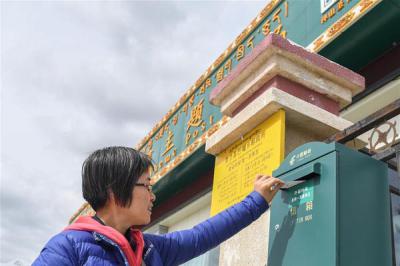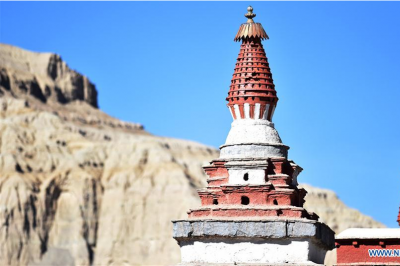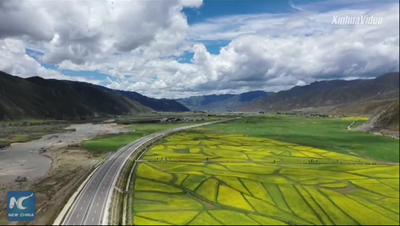Tibet in the Civilization of the Silk Road
(Argentina) Andrés Flores
Tibet was an important part of the ancient Silk Road. That route began in present-day Xian and took a northeasterly course, until it entered the Gobi Desert. When arriving at Yumenguan, it was divided in two ways that bordered the hard desert of Taklamakan, one by the north and the other by the south. This last route was conducted through the northern part of the Tibet and the desert margin. For more than a thousand years, goods traveled through this route, making commerce flourish. Lhasa became then a center of commerce and even got the nickname of "The Silk Route of the South”.
The trip wasn’t simple. The great height, the inclemency of the climate and the plentiful rivers subjected the intrepid travelers to a great demand.
The role of Tibet in the construction of the Belt and Road
Tibet plays a very important role in the construction of the Belt and Road. Within this great project there are four more subprojects, including the Trans- Himalaya corridor. Currently both the route and the railway linking Guangdong, Tibet and Nepal allow the exchange of goods to and from China. This large investment in infrastructure will undoubtedly bring greater economic growth to the area, bringing welfare and progress to the people of Tibet, China. That’s why President Xi Jinping himself said that the pillars of the project are political communication, monetary circulation, agreement among peoples, connectivity and fluidity.
The opening of Tibet and the continuity of the Tibetan civilization
The opening of Tibet is being very beneficial for its inhabitants. You just need to see the great growth registered in its GDP during the past year 2018: 9.1%.
The present and future of the Tibet is based on the construction of a modern economic system, with a sustainable and open development. This is implemented through government support to key industries adapted to the geographical conditions. Qizhala, governor of the Tibet Autonomous Region, said that special attention will be paid to industries such as biology, clean energy, tourism and border trade.
This won't simply be an opening to the external market, but will also focus on national companies to establish themselves in the area.
The Tibetan civilization will be the protagonist of great changes and modernizations that will lead to its prosperity through better connectivity and more job opportunities. Through peace, economic development, expansion of health, openness and cooperation, new paths are extended that connect the Tibet more efficiently. In this article I will mention, from the place, the key elements of this initiative.
Andres Flores, Argentina
Journalist Specialized in International Politics,
News Anchor of A24 TV Argentina
|
- Home
- News Tibet |Exclusive |China |World |Other Tibetan-Inhabited Area |Tibet through the Eyes of Foreigners |Related News
- Documents White Papers |Others
- Photo Politics |Economy & Society |Culture & Religion |Human & Nature |Beautiful Tibet |Other Tibetan-Inhabited Area |Exchanges |Related
- Video News |Documentary |Micro-Video |Entertainment
- Art
- Tourism
- In Focus
- About Tibet






